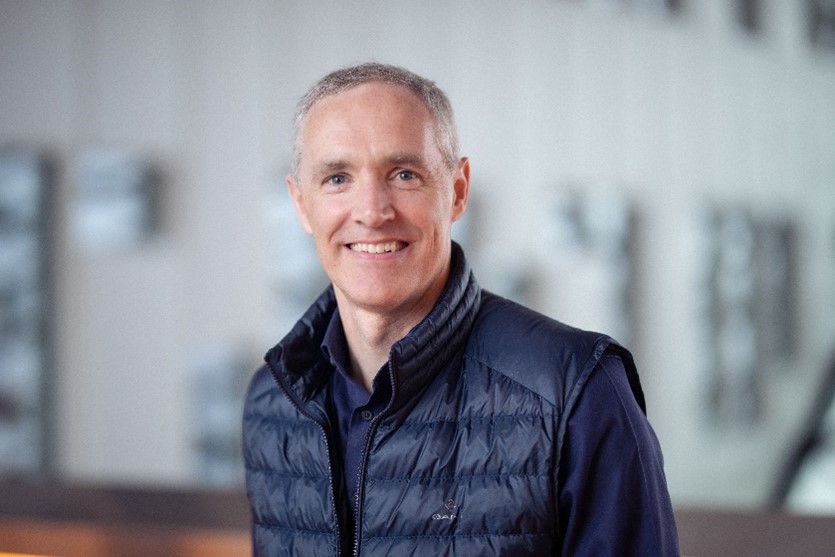BP has significantly increased its capital allocation to its venture unit. Some 90% will go to energy transition, says head of unit Gareth Burns.

BP Ventures plans to invest some $1bn into startups over the next three to four years, mainly in energy transition, as the new head, Gareth Burns, pushes through a strategic change at the energy company’s investment unit.
“It’s a significant step up in capital,” says Burns.
While Burns and BP have stopped short of confirming a precise dollar figure for investment in startups, they have indicated that this next tranche of investment capital — Fund Five — will be on par with what BP Ventures has spent in total so far in its 10 years of existence. That is $1bn.
More than 90% of this spending will go to startups working on technologies related to what BP refers to as its five “transition growth engines” — bioenergy, electric vehicle charging, convenience, renewables and power, and hydrogen.
“In dollar terms, at that it’s about a 60% increase compared to our previous investment activity,” says Burns.
The BP investment team has also been increased by 50% to 25 people since Burns took over at the start of the year.
But Burns’s plans for BP Ventures are not just about becoming bigger. He is bringing a different approach to the unit he took over just over a year ago. For one thing, Burns, who is based in London, is shifting the focus of the unit to be less US-centric. He is also changing the way that the unit evaluates potential investments.
“I’ve tried to bring greater focus to delivering upon the investment strategy. We’ve made some adjustments to how people focus on different elements. We’ve got a greater link to the transition growth engines, so that when we’re looking at a new investment within a particular segment, it is being compared with all other opportunities within that same segment,” says Burns.
Recent investments include leading the series A round for Advanced Ionics, a US developer of lower-cost electrolysers for green hydrogen production, and Electric Hydrogen, which is building larger-scale plants for the production of green hydrogen. Both of these have a potential tie-in with BP’s broader hydrogen plans.
“We hope to have the opportunity to deploy those technologies into our activities over time, as those technologies actually prove themselves,” says Burns.
At the same time, BP Ventures will still seek to invest in startups beyond the immediate needs of BP business units. This is what Burns calls the “explore” space.
“What are the new technologies and new opportunities that are being developed sometimes in scientific labs, sometimes around business models? We will look to allocate some capital into that white space with a view to informing what will be BP’s future strategies further out in time,” he says.
This is a model he already had some experience developing in his previous role leading Equinor Ventures, the investment arm of the Norwegian energy company.
“I talk about ventures being the pointy end of the sphere. It is seeing where the energy ecosystem is developing and moving, and then using that insight to impact what we do at a corporate level,” he says. “At Equinor we were using venture to inform what we were going to do in the future. That is something that we’re looking to do [at BP], getting a strong link between the transition growth engines and the venture activities. We can bring insights into what they will do in the future.”
Burns says one of the reasons that he was eager to join BP was that the UK energy company, which has revenues of over $230bn, around twice those of Equinor, gave him the opportunity to try this strategy on an even broader scale, as the group transitions from oil company to integrated energy company.
“It’s a much bigger sandbox to test some of these different ideas,” he says.
At the same time as proving the value of ventures internally, Burns wants to improve the way that BP is perceived as a startup investor.
“I would like BP Ventures to be to become the energy CVC of choice. I don’t think we’re there today. But with this new investment strategy, with the mandate and support we’ve got from BP, I believe it is something that we will be able to deliver on over time,” he says. “Ultimately, we need to work really hard to do that.”
Burns confirmed that BP Ventures’ focus would be on equity investments. BP Lauchpad, an internal venture builder and scale-up division that BP launched with ambitious targets in 2018, is something that Burns says has “served its purpose” and will not be a focus for him. Many of the companies Launchpad built and grew are being integrated into BP. “My primary focus is on ventures,” says Burns.

Maija Palmer
Maija Palmer is editor of Global Venturing and puts together the weekly email newsletter (sign up here for free).








